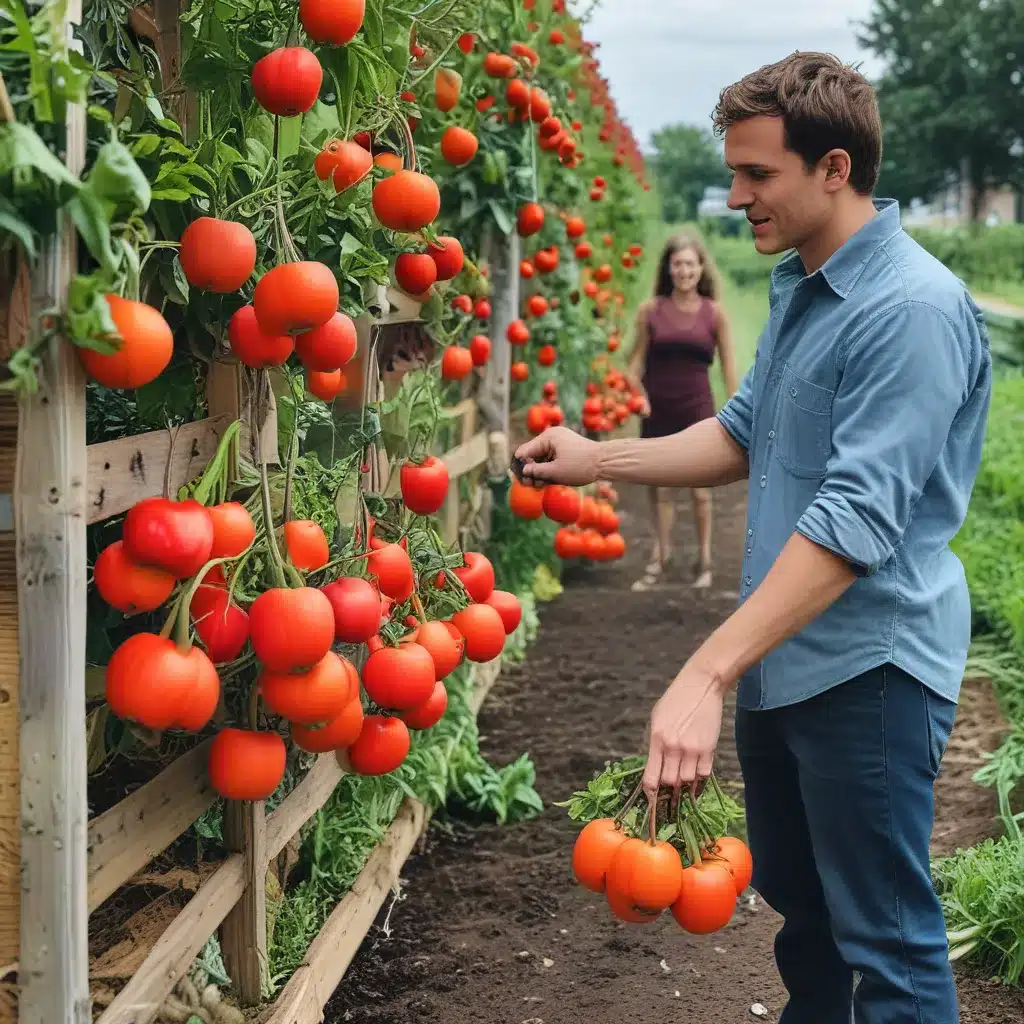
Cultivating a Green Revolution in the Concrete Jungle
As I stroll through the bustling streets of our vibrant city, I can’t help but marvel at the hidden gems that are springing up all around me. Amidst the towering skyscrapers and bustling sidewalks, an urban farming revolution is quietly taking root, and Thornapple CSA is at the forefront of this green renaissance.
It wasn’t always this way, though. Just a few years ago, the idea of growing our own food in the heart of the city seemed like a far-fetched dream, but thanks to the tireless efforts of the Thornapple team, that dream is now a reality. I still remember the day I first heard about their ambitious plans to transform vacant lots and rooftops into lush, productive oases. I’ll admit, I was skeptical at first – how could they possibly pull off such a massive undertaking in the concrete jungle? But as I learned more about their innovative approach, I quickly became a true believer.
Overcoming Urban Challenges: Thornapple’s Innovative Solutions
The challenges of urban farming are numerous and daunting, but Thornapple CSA has tackled them head-on with a combination of creativity, resourcefulness, and sheer determination. One of the biggest hurdles they’ve faced is the lack of available land – a precious commodity in any city. According to a report by the Canadian Forest Service, urban areas are typically characterized by limited green spaces and a high concentration of impermeable surfaces, making it difficult to find suitable sites for cultivation.
But Thornapple CSA has found a way to work around this constraint by focusing on unconventional spaces, such as rooftops and vacant lots. Through a partnership with the city, they’ve been able to transform these underutilized areas into thriving urban oases, where a wide variety of fruits, vegetables, and herbs are grown.
Another challenge they’ve had to overcome is the issue of soil quality. As noted in a study by the Pennsylvania State University, urban soils are often contaminated with heavy metals, pollutants, and other harmful substances, making them unsuitable for traditional farming practices. But Thornapple’s team of experts have developed innovative soil remediation techniques, using a combination of organic amendments, biochar, and specialized planting strategies to create healthy, nutrient-rich growing mediums.
Fostering Community Engagement and Empowerment
One of the most remarkable aspects of Thornapple CSA’s work is their commitment to community engagement and empowerment. They understand that urban farming is not just about growing food – it’s about building a more sustainable, resilient, and connected city.
That’s why they’ve partnered with local schools, community centers, and youth organizations to offer educational programs and hands-on workshops. Through these initiatives, they’re not only teaching people how to grow their own food, but also instilling a sense of environmental stewardship and civic pride.
As noted in the 2023 Community Health Needs Assessment for Kent County, access to fresh, nutritious food is a major challenge for many urban residents, particularly in low-income neighborhoods. By establishing urban farms in these underserved areas, Thornapple CSA is helping to address this issue, while also providing employment opportunities and fostering a deeper connection to the land.
But the impact of their work goes beyond just food security. By getting people involved in the growing process, Thornapple is helping to cultivate a sense of community and ownership that extends far beyond the boundaries of their urban farms.
Embracing a Whole-Systems Approach
At the heart of Thornapple CSA’s success is their holistic, whole-systems approach to urban farming. They understand that growing food is just one piece of the puzzle – it’s also about energy efficiency, water management, waste reduction, and a host of other interconnected factors.
That’s why they’ve incorporated sustainable design principles into all of their urban farming projects, from the use of solar-powered irrigation systems to the implementation of closed-loop composting programs. By taking a comprehensive view of their operations, Thornapple is able to maximize the environmental and social benefits of their work, while also ensuring the long-term viability of their urban farming initiatives.
Cultivating a Thriving, Resilient City
As I walk through the lush, vibrant urban farms that Thornapple has created, I can’t help but feel a sense of awe and inspiration. These aren’t just mere plots of land – they’re living, breathing ecosystems that are teeming with life, from the buzzing pollinators to the thriving communities of microorganisms in the soil.
But beyond the immediate visual impact, these urban farms are having a profound and lasting effect on our city. By providing access to fresh, nutrient-dense produce, they’re improving the health and well-being of our residents. By creating green spaces and promoting biodiversity, they’re enhancing the city’s resilience in the face of climate change. And by fostering a sense of community and environmental stewardship, they’re laying the groundwork for a more sustainable, equitable, and thriving future.
It’s no wonder that Thornapple CSA has become a beacon of hope for urban communities across the country. Their innovative approach to urban farming is not just a model for other cities to emulate – it’s a testament to the power of human ingenuity, collaboration, and a deep, abiding love for the natural world.
As I reflect on all that Thornapple has accomplished, I can’t help but feel a renewed sense of optimism for the future of our city. With visionary leaders like the Thornapple team paving the way, I know that the potential for urban farming to transform our communities is truly limitless. And I can’t wait to see what they’ll dream up next.



